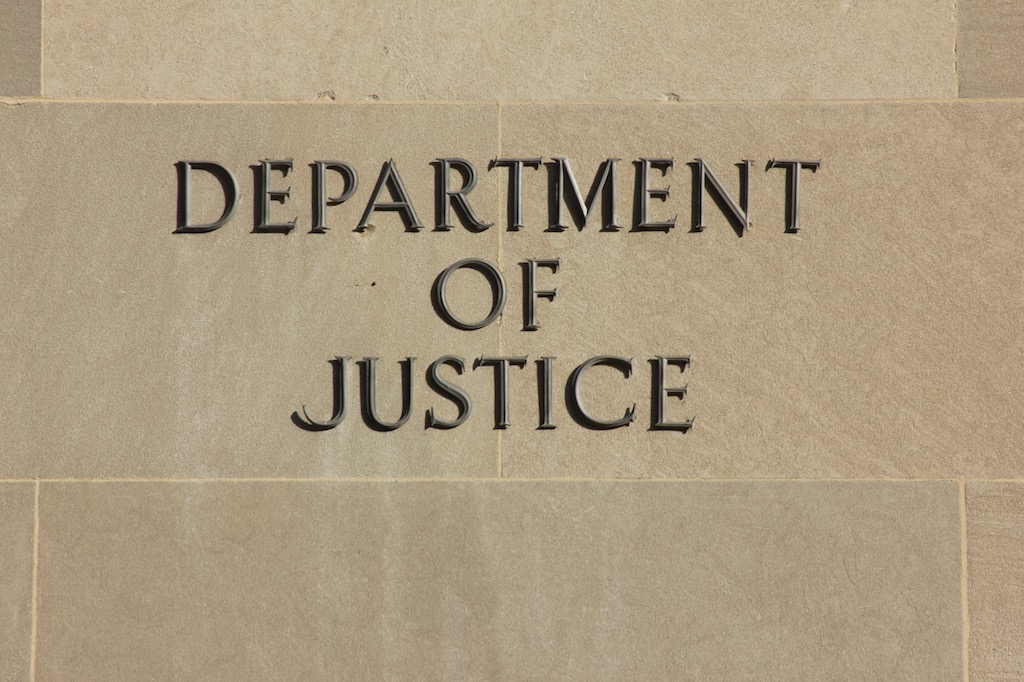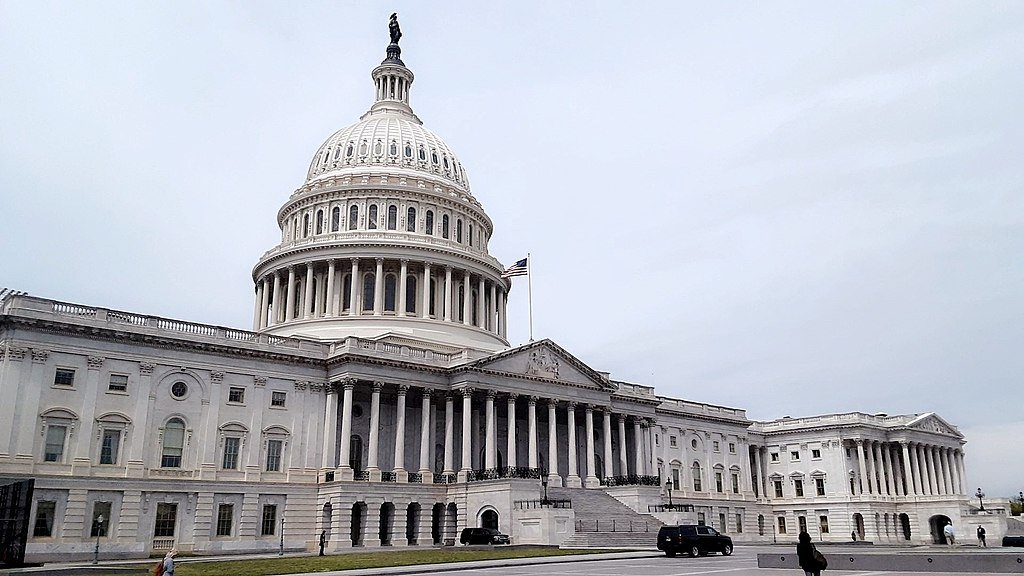In Defense of Rosenstein and Wray’s Responses to Trump
I wrote Monday morning about costs within the Justice Department when its leaders stay silent in the face of the president’s caustic attacks on the department’s independence and integrity. I mentioned in particular the silence of Attorney General Jeff Sessions, Deputy Attorney General Rod Rosenstein and FBI Director Christopher Wray. I concluded:

Published by The Lawfare Institute
in Cooperation With

I wrote Monday morning about costs within the Justice Department when its leaders stay silent in the face of the president’s caustic attacks on the department’s independence and integrity. I mentioned in particular the silence of Attorney General Jeff Sessions, Deputy Attorney General Rod Rosenstein and FBI Director Christopher Wray. I concluded:
I suspect that these men tell themselves a story … that crossing the president in public would result in their firing but not stop Trump, and that the nation is better off if they stay silent and do their jobs. Perhaps so. That calculus, and that decision, are intensely personal and contextual.
But in performing this calculus, the leaders of the Justice Department should candidly consider the large costs of their silence. When they do not speak out against the president’s attacks on their institutions and the rule of law, they signal to their employees and the world that they are indefeasibly beholden to the president, or that they do not care. The failure to protect and defend the department engenders anger, suffering, and resentment by the men and women they are charged with leading. It also contributes to a sense of delegitimization within the department, and thus stokes the morale crisis. These are not consequences that any leader should ever tolerate.
Since I wrote these words, Wray and Rosenstein have spoken in ways that are widely seen as a response to the president and a defense of the Justice Department and FBI workforces. On Monday, Wray sent an email to FBI employees in which he stated that he was “inspired by example after example of professionalism and dedication to justice demonstrated around the bureau. It is truly an honor to represent you.” Wray urged the FBI to “continue to keep focused on our critical mission” and concluded: “Keep calm and tackle hard.” And Tuesday, Rosenstein stated in remarks at a Criminal Division ceremony that: “In this department, Justice is our name. And justice is our mission. … Justice is not just about winning a particular case, or sending a particular person to prison. It is about a fair and impartial process.”
Neither Wray nor Rosenstein mentioned Trump by name. But both statements were rightly interpreted as responses to Trump’s attacks. I assume they were interpreted this way within the Justice Department and the FBI as well.
Are these responses adequate? Susan Hennessey probably represents many in thinking not. She says:
In worst days post-Snowden, Gen. Alexander's full-throated defense and support of NSA rank and file was so critical to morale. Hard to see how gestures like this from Wray are sufficient. https://t.co/m0zo4TUkvw
— Susan Hennessey (@Susan_Hennessey) December 5, 2017
I disagree, or at least think the matter is more complex. As National Security Agency director, Gen. Keith Alexander’s “full-throated defense and support of NSA rank and file” was in response to a body blow to the agency due to the Edward Snowden revelations and perhaps a response as well to the too-tepid initial support of the agency offered by President Obama. But Alexander’s situation was much different, as was his president, and he never openly disagreed with Obama by name—at least not that I recall.
Rosenstein and Wray are engaged in a much more difficult and delicate balancing act. They are dealing with a president who is attacking the integrity of the Justice Department and the FBI in a truly unprecedented fashion at a time when many of the president’s associates, and probably the president himself, are under investigation by the Justice Department and FBI. And indeed, the president’s attacks on the department and FBI are probably designed to discredit that investigation. Against this background, Rosenstein and Wray face at least three important challenges.
First, they have to defend the Justice Department and FBI in a way that maintains their personal credibility with the president. This is an admittedly slight consideration. Taken alone, it might not count for much, and one might think that the two men should simply stand on principle, stand up to the president openly and be fired. But there are at least two more considerations that cut the other way.
The second consideration is the impact on the Justice Department if Trump cans Rosenstein and especially Wray. If these men more openly defied the president and he fired them, it is hard to see how the department and FBI, or the Trump investigation, would be strengthened. The more likely consequence would be that the Justice Department and FBI would be thrown into further disarray than they already have been by the many unfortunate events of the past year, ranging from Comey’s firing to Rosenstein’s uneven performance to Sessions’s utter failure to stand up for the Justice Department’s integrity—disarray all exacerbated a great deal, of course, by the president’s destructive tactics. One might even think that Trump would benefit from such a course of action and would look for an excuse to fire one or both. (I acknowledge that it is a hard question when to stand on principle and when not—Ben Wittes and I have debated this question in an analogous context.)
I am largely persuaded by this second consideration, but the difficulty of Rosenstein’s and Wray’s predicament comes into yet clearer focus when one considers that the Mueller investigation is under relentless attack for being biased, out of control and vindictive. I cannot yet assess the reality of these charges. Even the appearance of bias here is deadly because, as I once wrote in an analogous context, Mueller’s work “will be judged not just through the legal lens, but also through the political lens,” and its success “will stand in part on political factors.” In this light, it is important to remember that Rosenstein and Wray are deeply responsible for the Mueller investigation. Rosenstein appointed Mueller and, under the pertinent regulations, retains significant authority over Mueller’s investigation. Wray is leading the FBI, which is obviously heavily involved in the investigation. For legal and political reasons, they thus must be scrupulous in not being, or appearing, biased against the president.
Rosenstein and Wray thus find themselves in a wholly unprecedented situation and very awkward position. For reasons I outlined Monday, they must defend their workforce from the president’s unprecedented attacks. But they must do so in ways that do not compromise the Mueller investigation or their role in it. The president deepens their dilemma every time he attacks the Justice Department and the FBI. Indeed, Trump certainly senses this, even if he does not fully understand it—his attacks on law enforcement invariably help him by making Mueller and Rosenstein and Wray’s jobs in connection with the investigation harder and more political.
Against this background, the general statements by the two men in the past two days—statements that were formally neutral even as they unambiguously underscored the integrity of the Justice Department and FBI in ways that were widely seen as responses to Trump—is about the most that we, or their workforces, can reasonably expect.




